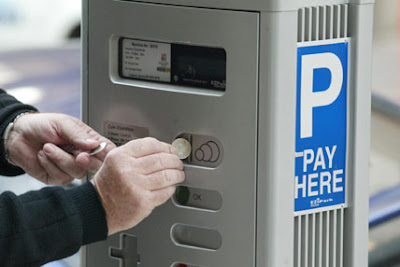As you may have heard, ex-Sun editor Kelvin MacKenzie is so incensed by the unaccountable money burning antics of his local council that he's standing for election as a councillor. His Red Mist Party pledge card reads:
-
- Cut car parking charges, which have just been increased by up to 43% in one year alone
-
- Cut the pay of the council leader, which has just been increased by 40%
- Scrap the final salary pension scheme for council employees (see many papers from the TaxPayers' Alliance)
He should poll well. Apart from his eye-catching policies, someone of MacKenzie's intelligence and energy is sure put a rocket up the council. We're just sorry he's not standing for our council.
MacKenzie's red mist descended because Elmbridge Council decided to increase the cost of his station's daily car parking charge by 43%. Just like that.
Interesting. Because all of us are suddenly realising how much these local authority charges have escalated. From car parks, to library fines (see this blog), to policing fees (see this blog), to pest control charges, these days local authorities routinely rack up their charges far faster than prices generally.
We've been taking a closer look at this. In 1997-98, charges and fees levied by English local authorities raised £5.5bn (excluding most council house rents). By 2005-06, the most recent year available, the total had shot up to £10.7bn, an average increase of 9% pa. Which compares to the government's official inflation rate (the Consumer Price Index) over that same period of just 1.3% pa.
Assuming this rate of charging increase has continued - and if MacKenzie's experience is anything to go by, that's a conservative assumption - by 2007-08 the total would have reached £12.6bn, more than £500 pa for every single household. Council charges now raise well over half the sum raised by Council Tax itself.
It's high time we started monitoring this properly. Because Council Tax is by far Britain's most unpopular tax, councils have become circumpect about increasing it, and anyway it's capped by Whitehall. But there are no such restraints on charges.
In principle, usage charges have a useful role to play as an alternative to taxation. But in practice, they are an addition to taxation: they are effectively yet another stealth tax.
Ever higher charges need to be opposed, just as Kelvin is doing.
